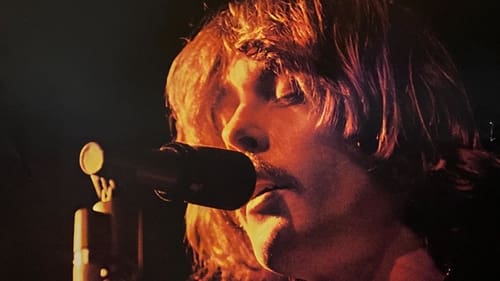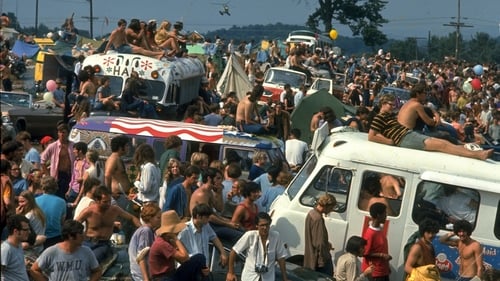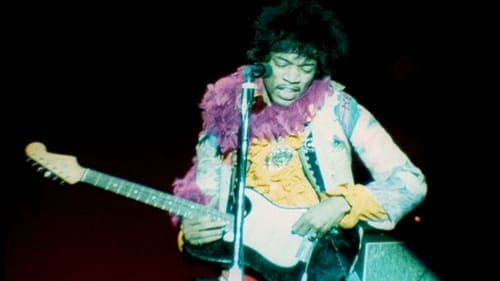
Self
There are only a few Bluegrass Boys still around that played with the Father of Bluegrass, Bill Monroe. Peter Rowan was a bluegrass boy in the 1960's for only a short time, but Bill's influence and musical knowledge still resonates with Peter. Even as he branched out into his own music after leaving Bill's band, his bluegrass roots were never far away. This portrait of Peter expands beyond his music to his artistic and spiritual endeavors spanning four decades giving the viewer an in-depth look at a true legend within our Americana musical history. His lyrical quality and melodies are memorable; influencing the next generation of musicians, sharing what Bill taught him and what he has learned being a troubadour traveling the world.

Self
Originally produced in 1997 as part of the Classic Albums television series, this newly edited, expanded edition features almost 40 minutes of additional content not see in the original feature. Bassist Noel Redding, drummer Mitch Mitchell and co-manager Chas Chandler detailed their contributions while engineer Eddie Kramer re-examined the many multi-track tapes created during the sessions. Help from Jimi's `friends and passengers' came by way of new interviews with drummer Buddy Miles, Jefferson Airplane bassist Jack Casady, Traffic's Dave Mason and Steve Winwood, among others.

Himself
Thirteen classic perfomances by Rock and Roll Hall of Fame band Jefferson Airplane, augmented by orginal interviews with the band members and photographs by famed photographer Jim Marshall.

Himself
Based on the life and death of Gov't Mule bassist Allen Woody, and the making of a double-disc tribute album (Gov't Mule's The Deep End , Volumes 1 & 2) featuring a host of legendary bass players. Throughout the film, director Mike Gordon (of Phish, who also plays on the album) interviews Woody's family and bandmates and also discusses the philosophy and technique of bass playing with a number of the instrument's legends, including Chris Squire, Les Claypool, John Entwistle, Flea, Bootsy Collins, Mike Watt, Roger Glover and others.

Himself - Performer
Legendary rock impresario Bill Graham closed the Fillmore West in early summer 1971 with five nights of all-star concerts, the last curtain going down on July 4. The storied San Francisco venue had become an institution, an integral part of the West Coast music scene of the '60s and, now, an essential element of the mythology of rock 'n' roll. Always the showman, Graham made sure the Fillmore West was sent off in a blaze of glory, spotlighting bands - including the Grateful Dead and Santana-that rose to fame at the hall. The madness leading up to the shows and the concerts themselves were filmed for FILLMORE: THE LAST DAYS, a gritty, behind-the-scenes look at a fascinating moment in rock history and a showcase for great performances by iconic artists who epitomized 'the San Francisco Sound.' Originally released in 1972 and long out-of-print, the documentary film makes its DVD debut with Rhino's landmark reissue.

Self (as Jefferson Airplane)
Documentary of a 1970 rock concert held in Rotterdam, The Netherlands.

Self
Uma crônica detalhada da famosa turnê dos Estados Unidos de 1969 pela banda de rock britânica The Rolling Stones, que culminou com o show desastroso e trágico realizado em 6 de dezembro no Altamont Speedway Free Festival, um evento de significado histórico, pois marcou o fim de uma era: a geração da paz e do amor tornou-se subitamente a geração da desilusão.

Self - Jefferson Airplane
Woodstock ou Festival de Woodstock foi um festival de música realizado entre os dias 15 e 18 de agosto de 1969 na fazenda de gado leiteiro de 600 acres de Max Yasgur, 70 quilômetros a sudoeste da cidade de Woodstock. Foi anunciado como "Uma Exposição Aquariana: 3 Dias de Paz & Música". O festival deveria ocorrer originalmente na pequena cidade de Wallkill, mas os moradores locais não aceitaram, o que levou o evento para a pequena Bethel, a uma hora e meia de distância. O festival exemplificou a era da contracultura do final da década de 1960 e começo de 1970. 32 dos mais conhecidos músicos da época se apresentaram durante um fim de semana, por vezes chuvoso, para 400 mil espectadores. Evento único e lendário, reconhecido como um dos maiores momentos na história da música popular. Tudo foi filmado para um documentário lançado em 1970, Woodstock, com trilha sonora dos melhores momentos, e com a canção Woodstock, de Joni Mitchell.

Himself - Jefferson Airplane
O festival Monterey Pop realizado em 1967 é considerado por muitos o precursor dos festivais de música tal como os conhecemos hoje em dia. este filme, o diretor D. A. Pennebaker registra os incríveis shows e conversa com o público para captar a emoção desta experiência pioneira.







